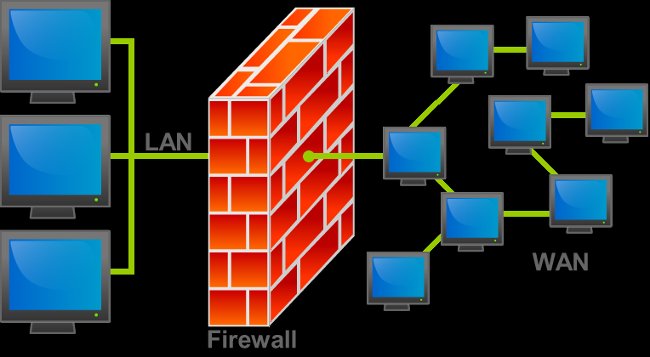Fun facts behind 10 popular technology terms
Common words like " spam ", " mouse " and " hacker " are words that when we mention we can think of technology. Because many people often use them in a world where technology is dominating, nature becomes part of the dictionary. In fact, these words are completely natural in origin, so we rarely question where these terms come from or why they are used in technology. Why is the device to control the computer pointer named after a small rodent? How is the name of the canned meat used to describe unwanted messages? Here are the interesting stories behind 10 commonly used tech terms you may not know yet. Invite you to consult!
1. Hacker

Most of us think that the word Hacker and Hack means the bad side of the Internet.What is hacker really ? Hacker is a technology term commonly used to describe Internet users breaking into stolen software or changing, illegally using data in order to carry out certain schemes. However, the origin of the word " hacking " is significantly different from what we think. In the past, hackers were used to refer to tech-savvy people. According to the book " Piracy Cultures " said: " The term was first used in the 1990s and it means that someone who works as a writer and tester hires software or who likes to program computers for profit. their own benefits ".
But for some reason, the meaning of the word " hacker " has been changed as today making many people try to call back the original meaning of the term. Besides, those who break into computer networks, software should be called " Cracker " - software crackers.
2. Robot

When it comes to " robots " many people can guess this word is derived from science fiction. However, the fictional works that invented common technological terms are not the story of HGWells or Philip K.Dick but it was a Czech word play since 1921. It is called " RUR ", tells of a factory that creates artificial humans, then rebels and destroys humanity. Today, robots are no longer a science fiction character. Robots are now real and are being used in many areas such as military and health care. Moreover, according to the future vision of playwright Karel Capek they will be not far away and Bill Gates believes that someday robots will become an essential part of every company and people will not need to work anymore. .
3. Meme

Meme can be considered a cultural symbol in many different forms. Meme is any type of information simulated on the Internet, be it a link, image or video. In fact, we may all know about meme but don't know the interesting story behind that name. The term was coined by Richard Dawkins, who used the word in the book " The Selfish Gene " written in 1976. Of course, the word has existed long before Good Guy Greg or Harlam Shake. So Richard Dawkins can never know that this name can be widely used on the Internet. However, meme still carries its original meaning: the way cultural information spreads. Richard Dawkins simulated a Greek word " mimeme " - describing something imitated and it is almost similar to a French word " mie " meaning " like ."
4. Bug

Many people believe that the term technology comes from computer programmer Grace Hopper , who found a real butterfly in the computer system. In 1947, while working on a Harvard University computer, Grace Hopper saw a dry dead butterfly on a relay and from then on any technical problem was called " a bug. ". However, Hopper and her colleagues were not the first to use the term, but Thomas Edison, a scientist. In 1873, when Thomas Edison was 26 years old, he called an error with a four-span telegraph system " bug" . Thomas Edison wrote in his handbook: " There are still too many horrible bugs ." Thomas Edison's diary showed that he continued to use the word throughout his career.
5. Spam
Every time you receive an email saying you " won the jackpot ", you mark it as " spam ", you have to thank the British comedian Monty Python for creating it. Technology terminology for a large number of spam messages originating in a play, in which everything in the cafe is spam and soon the patrons start singing from " spam " non-stop . The script of the play is still popular on the Interet network, and perhaps this term is now used to describe annoying and unwanted things everywhere.
6. Hive (honeycomb)

On the Windows Registry, there is a database that stores configuration settings for the operating system, branches stored in multiple drive files called " hive ". This term derives from the joke of Microsoft employees. One of the developers was so afraid of bees that those responsible for programming the registry decided to build it according to the honeycomb to tease him. They call the data area stored as " cells " and files that form " hives" themselves . Since then, the term " hive " is used.
7. Mouse (Mouse)

Douglas Engelbart, creator of the computer mouse that died last year, never revealed exactly the origin of the device's name. Douglas Engelbart said: " No one can remember why they chose that name, except that the device is quite similar to a mouse with a tail ". However, a hardware designer working in the technology field at the time, Roger Bates had quite a different memory. Roger Bates wrote in his book " What The Dormouse Said " that the cursor on the computer screen was once called a CAT. The navigation device called " mouse " is because it chases the cursor.
8. Blog

In 1997, educational software and game developer John Barger decided to create a website to share his thoughts about anything he wanted. John Barger wrote about computers, artificial intelligence and James Joyce. John Barger called the site " weblog " like recording thoughts and feelings through the web. Two years later, the term was shortened to " blog " for the personal page of Peter Merholz. Perhaps " blog " became a popular term that year, when Pyra Labs decided to create a website that allowed users to set up their own online logs and named Blogger . Currently it is still a popular platform for blogging.
9. Cookies

Lou Montulli was the creator of the cookie term, he explained the reason for choosing this word to refer to the small pieces of information stored on the website: " I have heard the term" magic biscuits "(Magic Cookies) in an operating system course while in college This term has something like the way Web cookies work and I like to use the word 'cookies' for aesthetic reasons ". So where does the term " magic cookie - magic cookie " come from? There is no explanation, but many people believe that it comes from an old video game that players collect them to develop.
10. Firewall (Firewall)

In the real world, a firewall is a barrier designed inside a building to protect it from fire. In technology, firewalls also operate in a similar way - a digital barrier to protect software from external problems entering and destroying. Although it is now a popular technology term, the word was used for the first time with technological significance in 1988 by Digital Equipment Corporation, the unit that published the research on the filter system. come as filter-packed firewalls.
Refer to some more articles:
- 52 funny facts about everyday things we don't expect (Part 1)
- 23 truths make you afraid of everyday tasks
- The interesting fact about the universe is not quite the same as what we thought
Having fun!